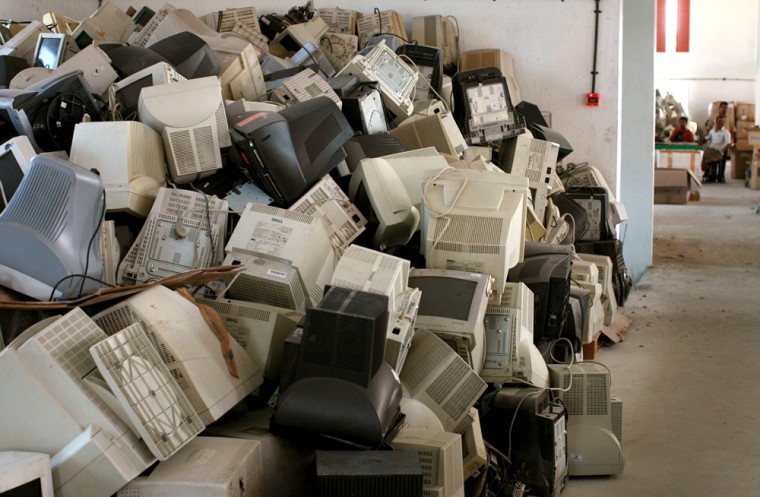The U.S. is doing little to protect against the potential dangers of obsolete televisions, computers and other devices sent abroad for reuse or disposal, congressional investigators reported Wednesday.
People in the U.S. threw away 330 million electronic devices in 2006, and as many as 66 million were exported, according to estimates from the Environmental Protection Agency.
"Concerns have mounted that not all recycling is conducted responsibly, particularly in developing countries, and that some U.S. recyclers and exporters may be at fault," the Government Accountability Office said in a report requested by the House Foreign Affairs Committee.
U.S. oversight is so lax that the EPA requires notification and approval only for shipments of CRTs, or cathode-ray tubes, such as televisions and old-style computers, investigators said. Even that, the report said, has led to only one administrative penalty.
The EPA said the report was misleading and overstated the problem. "EPA is concerned that readers of the report may be misled to believe that a very large percentage of U.S. electronic waste is currently being reused and recycled globally," the agency said in response.
The report said used electronics sent abroad that cannot be repaired "are often recycled in developing countries by crude and inefficient means and with virtually no human health or environmental protection," the report said.
China, India, Vietnam, Cambodia and other Asian countries as well as some in West Africa are importing primarily for reuse instead of cannibalizing parts or recycling, investigators said.
The report cited dangerous practices in Asia involving the open-air burning of wire to recover coper and open acid baths for separating metals.
"U.S. law allows the unfettered export of nearly all types of used electronic devices. U.S. hazardous waste regulations do not consider most used electronic products ... as hazardous, even though they can be mismanaged overseas and can cause serious health and environmental problems," it said.
The problem is not universal in Asia, however. Since the ban on CRTs took effect in January 2007, the report said, Hong Kong inspectors have intercepted and returned to the United States 26 shipping containers of used CRT monitors. It was not because of the U.S. action; authorities in Hong Kong, a special administrative district of China, said they violated Hong Kong's hazardous waste import laws.
